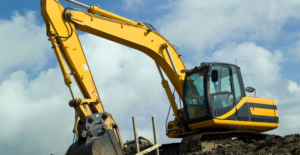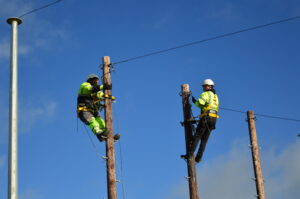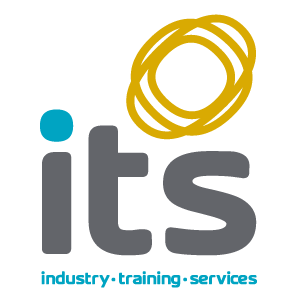Keeping Plant and Machinery on the Right Track!
You’re on a bustling construction site, surrounded by heavy machinery and lively workers. The air is filled with anticipation as rolling and dumping operations are in full swing. But amidst the excitement, safety takes centre stage. Why? Because nothing is more important than ensuring the well-being of every individual on that site.
Plant and Machinery safety training is all about ensuring that you return home to your loved ones after a productive day on the construction site. By understanding how to operate rolling and dumping equipment safely, you minimise the risk of accidents, injuries, and those “uh-oh” moments that could otherwise dampen the spirit of your work.
In recent years, the industry has responded to concerns over safety with increased regulations and improved training programmes. Many construction companies now require their operators to complete a comprehensive training course before they are allowed to operate rollers and dumpers.
Rolling and dumping operations involve heavy machinery and materials, which can pose significant risks if not handled properly. From bulldozers to dump trucks, these powerful tools require specialised skills and knowledge to operate safely. Mishandling or overlooking safety protocols during rolling and dumping activities can lead to accidents, injuries, and even fatalities.
Key Components of Plant and Machinery Safety Training:
Equipment Familiarisation: Effective safety training begins with getting to know the equipment involved in rolling and dumping operations. Trainees will learn about the different types of machinery, their functions, and proper operating techniques. This knowledge empowers individuals to make informed decisions and operate machinery safely.
Safety Protocols and Procedures: Safety protocols are the backbone of accident prevention. Our training covers essential safety procedures, such as pre-operational checks, signalling and communication techniques, and guidelines for working in proximity to other workers or structures. These protocols establish a consistent and safe working environment for everyone involved.
Risk Assessment and Hazard Identification: Understanding potential risks is crucial for proactive accident prevention. Safety training emphasises risk assessment and hazard identification techniques. By learning to identify and mitigate potential hazards, construction professionals can take proactive measures to prevent accidents and create a safer work environment.
Emergency Response: In any construction site, preparing for emergencies is paramount. Safety training includes emergency response procedures, such as first aid training, fire safety protocols, and evacuation plans. Being equipped with these skills ensures that construction professionals can respond effectively in critical situations, minimising harm and promoting swift action.
Plant and Machinery safety training is important as moving machinery can cause injuries in many ways:
- People can be struck and injured by moving parts of machinery or ejected material. Parts of the body can also be drawn in or trapped between rollers, belts and pulley drives
- Sharp edges can cause cuts and severing injuries, sharp-pointed parts can cause stabbing or puncture the skin, and rough surface parts can cause friction or abrasion
- People can be crushed between parts moving together of plant and machinery
- Parts of the machine, materials and emissions can be hot or cold enough to cause burns or scalds and electricity can cause electrical shock and burns
- Injuries can also occur due to plant and machinery becoming unreliable and developing faults or when machines are used improperly through inexperience or lack of training
As experts in plant and machinery safety training , ITS offers a variety of accredited card schemes including CSR Plant Card Scheme, Construction Plant Competence Scheme, NPORS Card Scheme
As well as our accredited plant schemes we offer high standard in house training for those who do not need accredited training, this can be done at our premises, or we can go to your premises or site if suitable. With over 20 years of experience in training candidates, our in-house Plant and Machinery safety training programmes are highly effective and can be tailored to fit your needs. Whether you require accredited training or simply need to improve your skills, we have a solution for you. Our plant and machinery training can be conducted at our centre or on your own premises, depending on your needs and availability.
Remember, Plant and Machinery safety isn’t just a checkbox on your to-do list—it’s a mindset. Embrace the role of a safety advocate, spreading awareness among your teammates and inspiring them to prioritise safety every step of the way.
To book Plant and Machinery Safety Training with us visit: https://www.industrytrainingservices.com/training-courses/plant-machinery/ Alternatively: Call 028 3839 8700 or E-Mail [email protected]




